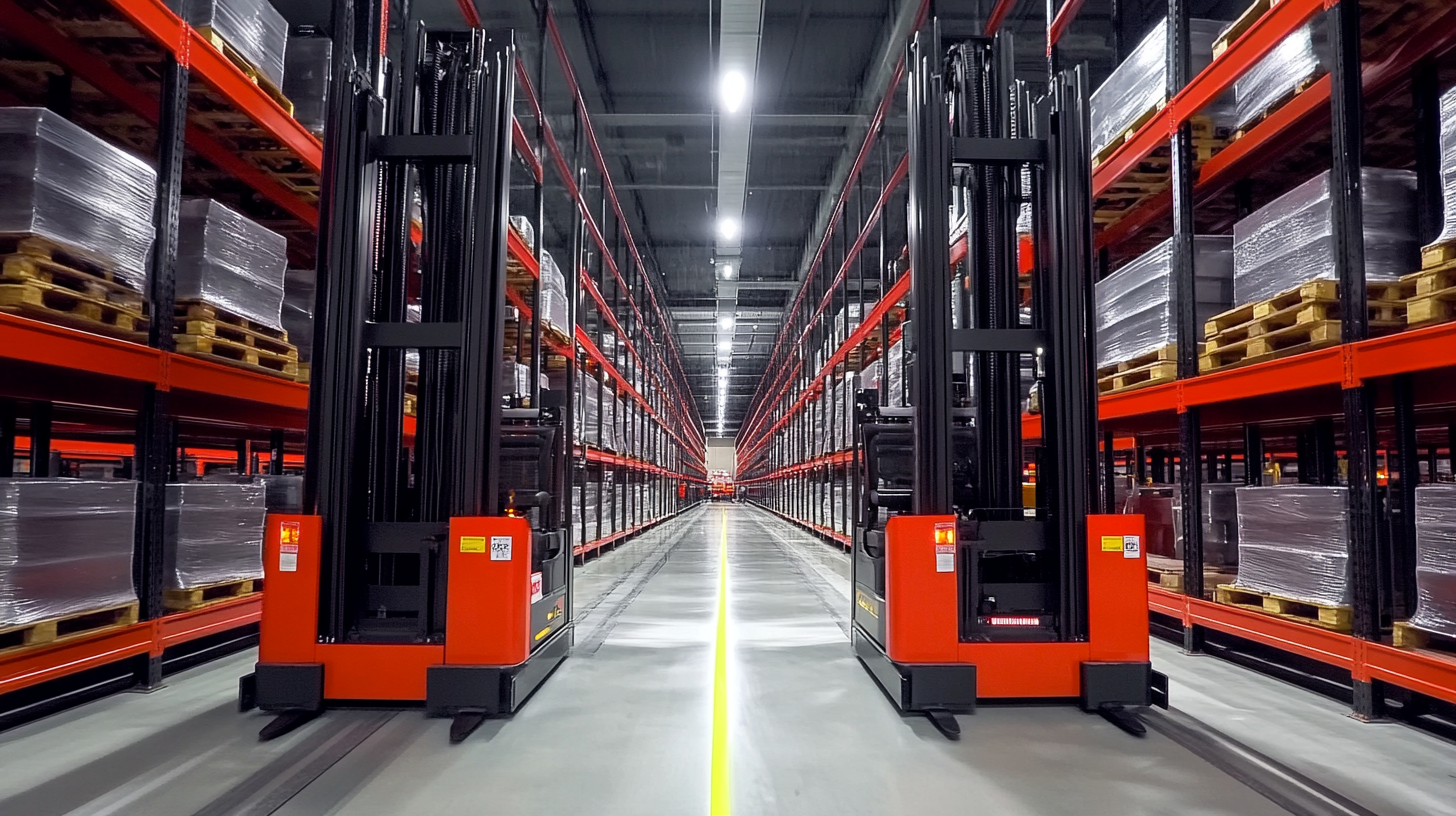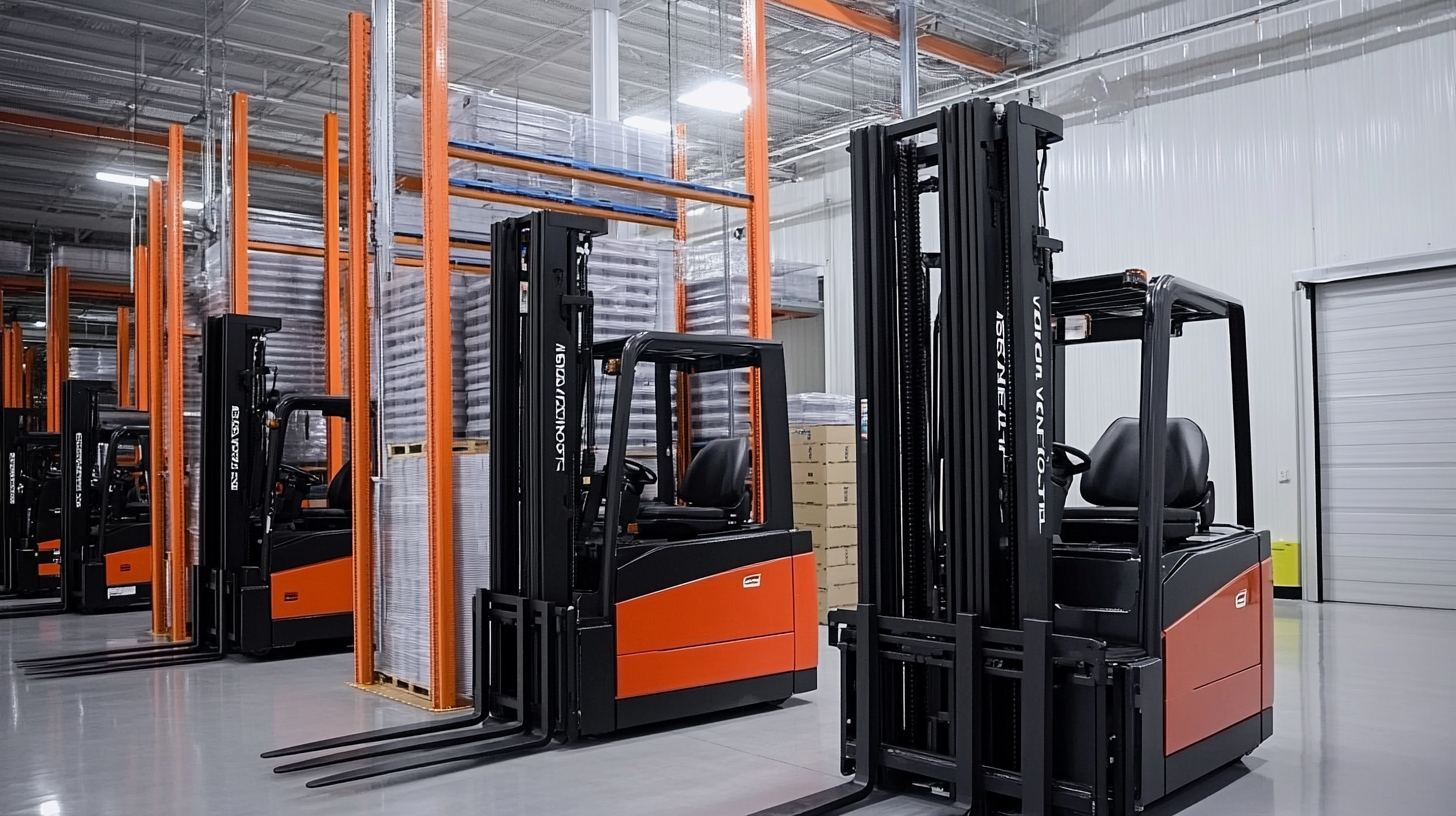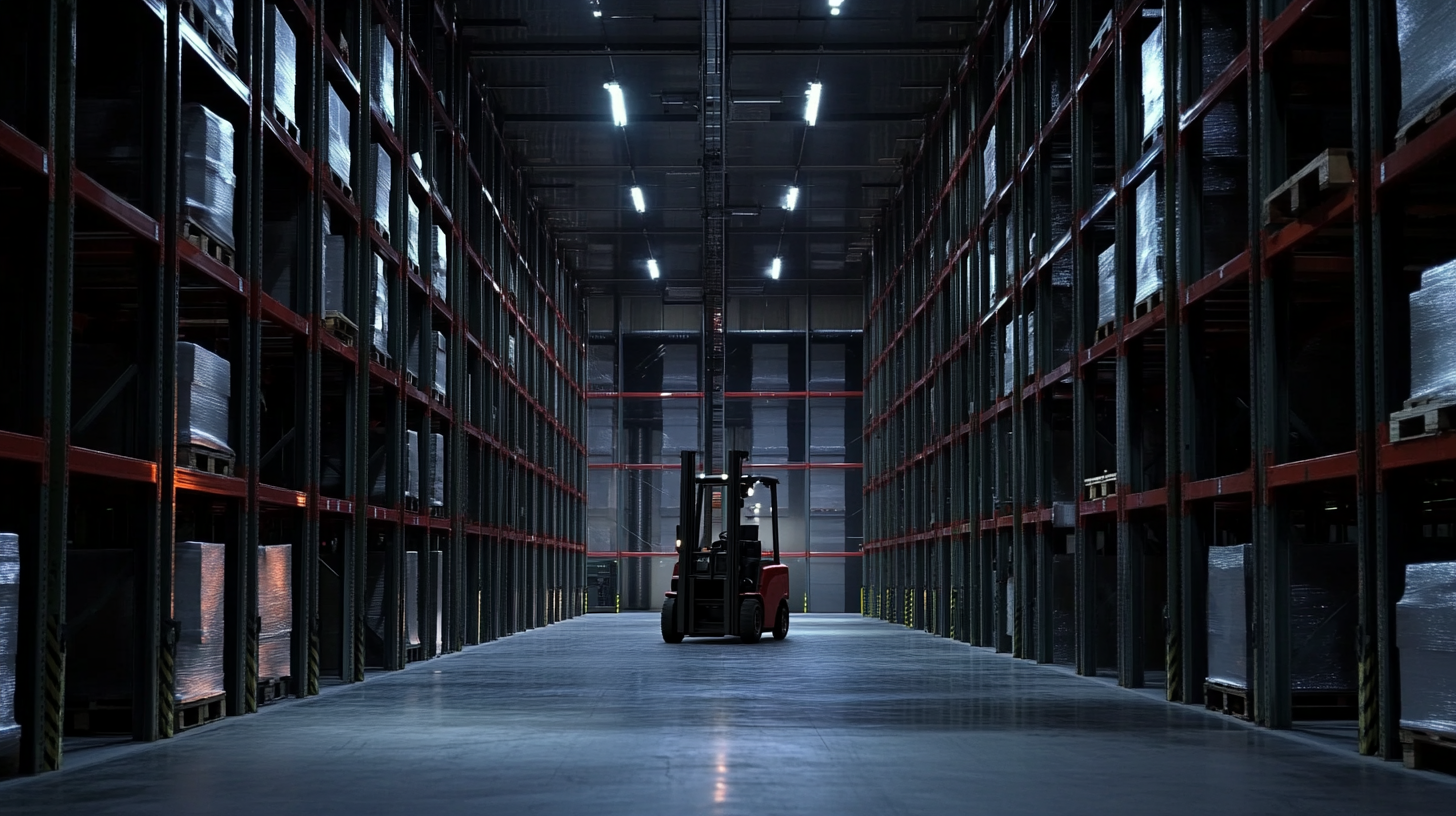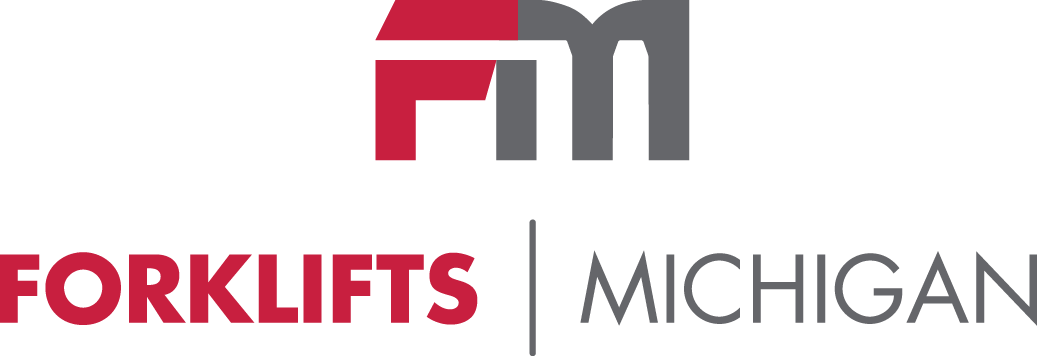Unlocking Efficiency with Motorized Forklifts for Modern Warehousing Operations
In the fast-paced world of modern warehousing operations, the need for efficiency and productivity is more crucial than ever. One of the game-changing solutions that have emerged to meet these demands is the motorized forklift. These advanced machines not only enhance material handling capabilities but also significantly reduce manual labor, leading to streamlined processes and increased throughput. With their ability to navigate tight spaces and handle heavy loads with precision, motorized forklifts represent a leap forward in warehouse technology. As businesses strive to optimize their supply chains and reduce operational costs, integrating motorized forklifts into their workflows is becoming an essential strategy. This blog will explore the various benefits of motorized forklifts and how they can transform warehousing operations, making them more efficient, safe, and adaptable to the challenges of the modern economy.

Understanding the Advantages of Motorized Forklifts in Warehousing
In the rapidly evolving landscape of modern warehousing, the integration of motorized forklifts has emerged as a game-changer. According to the Forklift Manufacturers Association, warehouses utilizing motorized forklifts can achieve up to 25% greater efficiency in material handling compared to traditional methods. This increase is attributed to the forklifts' enhanced maneuverability and ability to lift and transport heavier loads with minimal physical strain on workers.
Moreover, a study by the Material Handling Industry of America emphasizes that employing motorized forklifts can significantly reduce labor costs, with companies reporting savings of up to 20% on operational expenses. These forklifts allow for faster cycle times and improved inventory management, enabling warehouses to streamline workflows and enhance productivity. As businesses strive to meet increasing consumer demands and tight delivery windows, the importance of adopting advanced technology like motorized forklifts cannot be overstated. The move towards automation is not just about surviving in a competitive market, but thriving by maximizing operational efficiency.
Unlocking Efficiency with Motorized Forklifts for Modern Warehousing Operations
| Feature | Advantages | Impact on Operations |
|---|---|---|
| Increased Load Capacity | Can lift heavier loads than manual forklifts | Improves efficiency in material handling |
| Enhanced Safety Features | Includes safety alarms and automatic brakes | Reduces accidents and injuries |
| Improved Maneuverability | Better steering and turning capabilities | Increases speed in navigating tight spaces |
| Energy Efficiency | Less energy consumption compared to traditional forklifts | Reduces operational costs |
| Automation Compatibility | Can integrate with warehousing automation systems | Streamlines warehouse processes |
Key Features of Modern Motorized Forklifts for Enhanced Performance
In modern warehousing operations, efficiency is paramount, and motorized forklifts have emerged as essential tools for optimizing performance. Key features of these forklifts include advanced battery technology, which enables longer operating times and faster charging cycles, ensuring minimal downtime. Additionally, the integration of AI systems enhances operational decision-making, allowing for improved load management and real-time inventory tracking.
When considering the purchase of a motorized forklift, it's essential to prioritize features that align with your specific operational needs. First, look for models equipped with regenerative braking systems, which can significantly extend battery life and reduce energy consumption. Secondly, consider forklifts that offer intuitive control systems, as these can minimize operator training time and boost overall productivity.
Moreover, as businesses pivot towards sustainability, select motorized forklifts that utilize eco-friendly materials and efficient energy usage. Not only do these choices contribute to a greener operation, but they also position your business as a forward-thinking leader in the industry, ready to tackle the challenges of modern logistics.
Efficiency Breakdown of Modern Motorized Forklifts
Comparing Manual vs. Motorized Forklifts: A Productivity Perspective
In the fast-paced world of modern warehousing operations, the choice between manual and motorized forklifts significantly impacts productivity and efficiency. Manual forklifts, while often less expensive, require a substantial physical effort from operators, leading to longer loading and unloading times. Workers may experience fatigue, particularly during peak hours, which affects their overall performance and can lead to increased safety risks. Moreover, the reliance on human power can create inconsistencies in operational speed and precision.
On the other hand, motorized forklifts offer a game-changing alternative, enhancing productivity dramatically. Equipped with advanced features like electric power and ergonomic design, these machines enable operators to handle heavier loads with less strain. The automation of lifting and transporting goods streamlines workflows, allowing for quicker turnaround times. Additionally, motorized forklifts incorporate safety technologies that protect workers and reduce the likelihood of accidents, further optimizing warehouse operations. As businesses continue to seek improved efficiency, the shift to motorized forklifts becomes increasingly evident, representing not just an investment in equipment, but in the overall productivity of warehousing operations.
Unlocking Efficiency with Motorized Forklifts for Modern Warehousing Operations
This chart compares the productivity between manual and motorized forklifts, illustrating how motorized forklifts significantly increase the number of tasks completed in a day.
Safety Considerations When Using Motorized Forklifts in Warehouse Settings
When operating motorized forklifts in warehouse settings, safety should always be the top priority. These powerful machines can significantly enhance efficiency but come with inherent risks if not handled properly. Ensuring operators are well-trained in forklift operation is crucial. Regular training sessions and refreshers can help mitigate accidents and improve overall workplace safety.
**Tip 1:** Always conduct a pre-operation inspection before using a forklift. This includes checking for fluid leaks, ensuring the brakes are functional, and verifying that forks are properly attached. A thorough inspection can prevent mechanical failures and accidents.
Additionally, maintaining a clear organizational layout in the warehouse can help reduce the likelihood of collisions. Designating specific lanes for pedestrian and forklift traffic is essential. Signage and floor markings serve as reminders for both operators and other workers to be aware of their surroundings.
**Tip 2:** Implement a buddy system where experienced operators mentor newcomers. This collaborative approach not only improves skillsets but also fosters a culture of safety. Communication among team members can act as an extra layer of protection, ensuring everyone is informed and alert.

Best Practices for Maintenance and Operation of Motorized Forklifts
Maintaining motorized forklifts is crucial for ensuring smooth operations in modern warehousing environments. According to the Material Handling Industry of America (MHIA), improper maintenance can lead to increased downtime, with reports indicating that unplanned maintenance can account for up to 30% of a warehouse's operational inefficiencies. Regular inspections, adherence to maintenance schedules, and prompt repairs are essential practices that warehouse managers should prioritize to enhance facility productivity.
Tips: Implement a daily checklist for forklift operators to assess both functionality and safety features before use. This practice not only helps in identifying potential issues early but also empowers operators to take ownership of equipment safety.
Additionally, training staff on best operational practices can dramatically extend the lifespan of motorized forklifts. The Occupational Safety and Health Administration (OSHA) states that well-trained forklift operators are less likely to be involved in accidents, which can save organizations up to $50,000 per incident through reduced downtime and insurance costs. An ongoing training program that includes both operational techniques and safety protocols will contribute significantly to warehouse efficiency and safety.
Tips: Schedule regular training sessions that cover equipment handling, safety regulations, and troubleshooting common issues. This investment in human resources is key to maximizing the effectiveness of your equipment and workforce.



